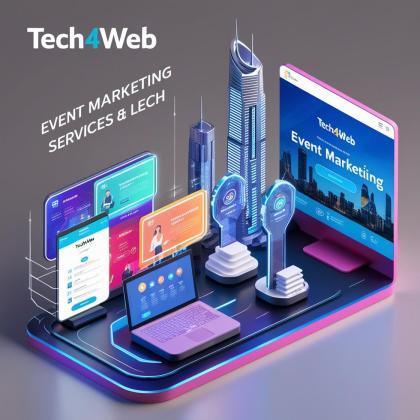
Tech4Web offers Event Marketing Services that cover all aspects of event planning, promotion, and execution. From creating a compelling event concept to driving attendance and maximizing post-event engagement, we craft custom event marketing strategies tailored to your business objectives. Our goal is to ensure that your event generates excitement, attracts the right audience, and delivers measurable results.
Event Concept and Strategy Development
Target Audience Identification
Event Branding and Positioning
Event Promotion and Advertising
Content Marketing for Event Engagement
Landing Page Design and Optimization
Social Media Marketing
Email Campaigns and Invitations
Influencer and Partner Marketing
Lead Generation During the Event
Event Logistics and Coordination
Virtual and Hybrid Event Solutions
Sponsorship and Partnerships
Event Tracking and Analytics
Onsite or Virtual Event Engagement
Post-Event Follow-Up
Event Surveys and Feedback
Post-Event Content Creation
SEO for Event Pages
Event Retargeting and Remarketing
In Stock 1 qty.
Per Quantity ₹1,999.00